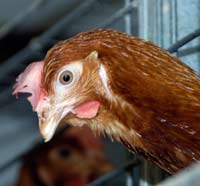Cage ban will directly affect the egg market in California

United Eggs Producer (UEP) members produce eggs in conventional cages enabling retailers and consumers to purchases eggs from cage-free systems at the lowest available cost.
This was the view of Gene Gregory president of the UEP, speaking at the recent International Egg Commission Conference in London.
Changes on the cage ban in Europe were based upon emotions and personal opinions driven by animal activists rather than science, he said.
According to Mr Gregory animal activists feel it is their moral duty to change society from one that has always enjoyed a variety of food choices and consumer rights.
“Activists are pressing their agendas through market intimidation and legislation,” he added.
The short-term plan by activists is for all eggs to be produced in non-cage systems and the long-term plan is to eliminate agriculture and create a vegetarian society, said Mr Gregory.
“California is an interesting case,” he explained, “The Humane Society of the United States put forward new legislation, a ballot initiative. It said that the purpose was to prohibit the confinement of farm animals in a manor that does not allow them to move around freely and fully extend their limbs.”
“Uninformed voters, voted for this legislation that is due to become effective on 1 January 2015,” he said.
“There are nearly 20m laying hens in California and it will have a direct impact on the market and an impact on what the United States does and what our egg industry looks like in the years to come,” he said.
The legislation in California will force producers out of business and force retailers to purchase eggs from outside America where there are lower standards of animal welfare, he added.
“We would need 15m more hens to produce the same number of eggs across the United States, as we currently do with cage systems.
“Can we feed a nation of 300m people with non-cage eggs? We know that we cannot.
“Consumers will still be eating eggs in cages after the legislation comes into force but they will have been produced elsewhere,” said Mr Gregory.
